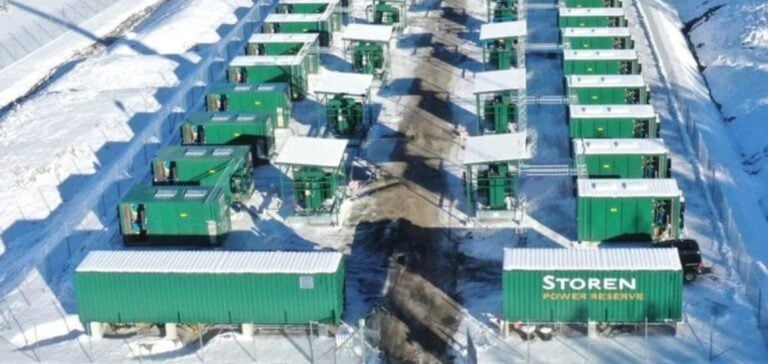Ingrid Capacity has teamed up with Locus Energy, a SEB Nordic Energy portfolio company, to deploy 196 MW of battery storage systems in southern Sweden.
The project, which includes the construction of 13 facilities, is designed to enhance the flexibility of the Swedish electricity grid, particularly in the SE3 and SE4 price zones.
This initiative represents the second largest investment in battery energy storage in the Nordic region.
Power grid optimization and price stability
The deployment of these storage capacities enables electricity production and consumption to be adjusted, ensuring greater grid stability.
Batteries store excess production from renewable energies and re-inject it when production is insufficient, reducing the need for costly peak-load power plants.
This flexibility also helps to stabilize electricity prices, a major issue for grid operators and industry alike.
The strategic location of these facilities, chosen on the basis of in-depth analyses of energy flows, optimizes their impact on the grid.
Economic impact and support for network operators
The integration of these storage systems provides essential ancillary services such as frequency regulation, essential for maintaining real-time grid balance.
In the medium term, batteries also support load shifting and reduce the need for costly infrastructure investments.
Distribution network operators (DSOs) and manufacturers alike benefit from this new energy management capability, which facilitates more efficient and less costly operations.
Strategic expansion and positioning in the Nordic market
With this initiative, Ingrid Capacity expands its portfolio of storage projects in Sweden, consolidating its presence in the Nordic market.
The company currently manages over 400 MW of storage capacity, a significant volume in a market where demand for flexibility continues to grow.
At the same time, Locus Energy, through this collaboration, is strengthening its infrastructure portfolio and diversifying its energy assets, while contributing to the region’s security of supply.
Outlook for the European market
The growing interest in energy storage solutions reflects the current dynamics of the European market, marked by efforts to modernize power grids and secure supplies.
Ingrid Capacity, in partnership with local players such as Locus Energy, aims to position itself on other markets in Europe, where flexibility and optimized energy management are becoming priorities.
The development of this capacity is seen as a response to the challenges of regulating and managing peak demand.





















